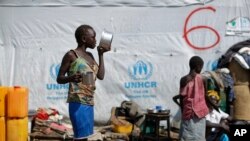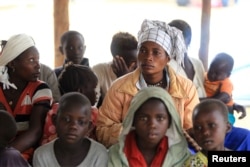The U.N. refugee agency has launched a nationwide biometric verification system in Uganda to make sure data gathered about refugees and asylum seekers is accurate. The UNHCR says this is to ensure assistance reaches those for whom it is intended.
Uganda provides protection to about 1.4 million refugees from South Sudan, Democratic Republic of Congo and Burundi. The government has been praised for its generosity and open-door policy for people fleeing conflict and persecution.
But a major corruption scandal last month, reportedly involving millions of dollars and the exploitation of refugees, has tarnished the country’s image and cast doubt on the credibility of its asylum policy. Four government officials have been suspended and are under investigation.
U.N. refugee agency spokesman Babar Balloch tells VOA the biometric verification system is important to fix discrepancies in Uganda’s refugee data. He says this new registration process will ensure that the thousands of refugees who are arriving daily in Uganda receive the assistance to which they are entitled.
“The issues that we have conveyed to the government of Uganda, it included allegations of misconduct and fraud and corruption as well," he said. "There were many questions around the credibility of the data, which is in Uganda’s government registration system. The UNHCR used to do registration until 2015 and then Uganda took it upon itself, and since then we have been raising issues."
Earlier this year, Balloch says Uganda’s prime minister accepted UNHCR’s offer to put in place the latest biometric verification system. Registration has begun in the Oruchinga refugee settlement in Uganda’s South-West region, home to thousands of Congolese refugees.
The UNHCR says this massive exercise then will be rolled out to cover more than 30 locations across the rest of the country. It says biometric checks also will be introduced at 180 food distribution sites. The process is expected to be completed by September.





